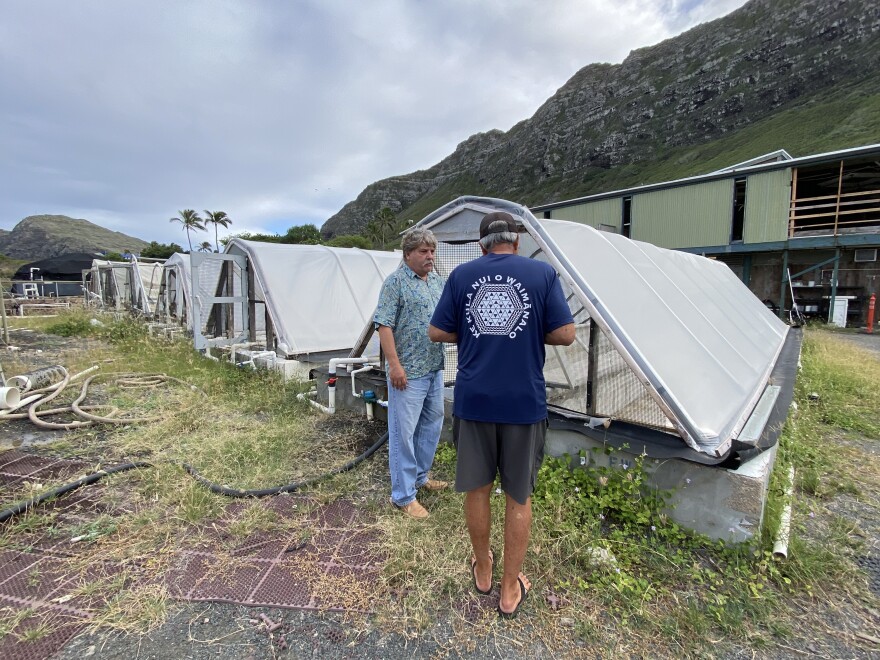Hawai‘i Pacific University has a federal grant for research on seaweed, or limu, that could potentially lead to commercial-scale cultivation.
Shaun Moss, the executive director of HPU’s Oceanic Institute, said the research hopes to assess whether various types of limu can be used to clean up effluent from shrimp and fish farms around the state.
"We’re going to take water from the mullet pond and pump it into a 37-square-meter raceway which will then feed into the different limu tanks," Moss told HPR.

"We’re going to assess biofiltration capacity of the limu, and growth rates of the limu and we’re going to try and find limu that can effectively clean up the effluent discharge from either a fish pond, a shrimp pond, or a moi pond, and then grow the limu as a secondary cash crop or for outplanting by the Waimānalo Limu Hui," Moss said.
Moss said he’s hopeful the project will be the catalyst for future efforts to use local seaweed for food and medicine.
"Limu, in the wild, a lot of populations have been decimated for a variety of reasons. And limu provides very important ecosystem functions. They provide habitat for marine life, they provide food, they soak up dissolved nutrients, including carbon dioxide, so they're a good sequester of carbon," Moss said.
"So they provide all of these very important ecosystem functions and through our project and hopefully the scaling up of our results to commercial scale will be able to provide a readily available source of limu for both outplanting and for direct human consumption because, as we know, limu is a very important food here in Hawaiʻi," Moss told The Conversation.

Moss said the project has 12 months to conduct its scientific work, after which the Oceanic Institute will hold a workshop for stakeholders and share the results. The nearly $188,000 grant is funded by the National Oceanic and Atmospheric Administration.
Moss tapped former HPU graduate Wally Ito to work with the community groups on the project.

"For years we've been talking or thinking about the integration of fish and limu in aquaculture. So when this opportunity came up, oh I'm so happy, you know, just things that I've been thinking about for a long time," Ito said.
Ito, also known as “Uncle Wally," shared that growing up as a spearfisherman, he never imagined becoming a “limu lover.”
Seaweed seemed to just get in the way of fish and lobsters. But like the saying, "Take care of the land and it will take care of you," the same could be said for limu. Take care of the limu, and you take care of the fish.
"The answers to our environmental issues, many of the answers can be found in what our Hawaiian ancestors knew and practiced," Ito added.
This interview aired on The Conversation on Dec. 19, 2022. The Conversation airs weekdays at 11 a.m. on HPR-1.






